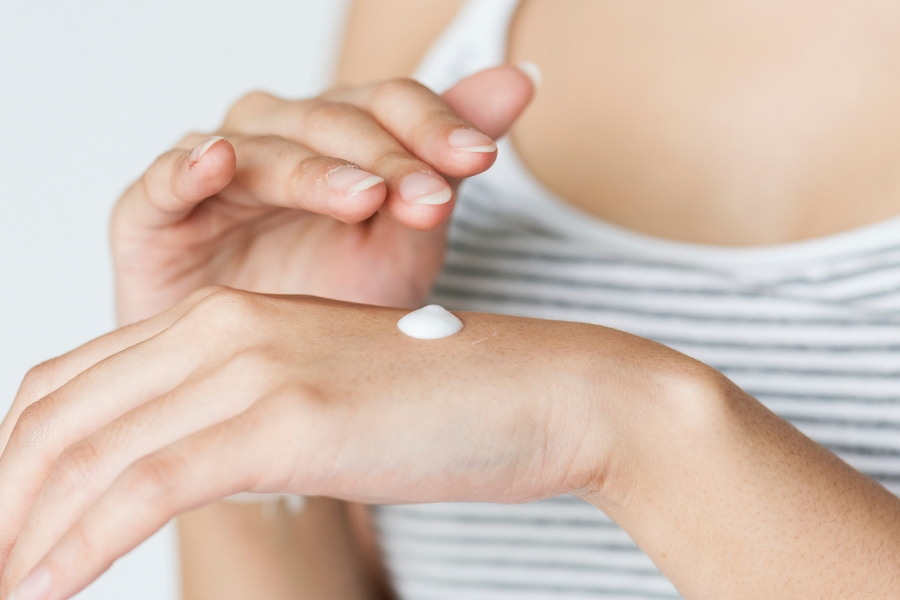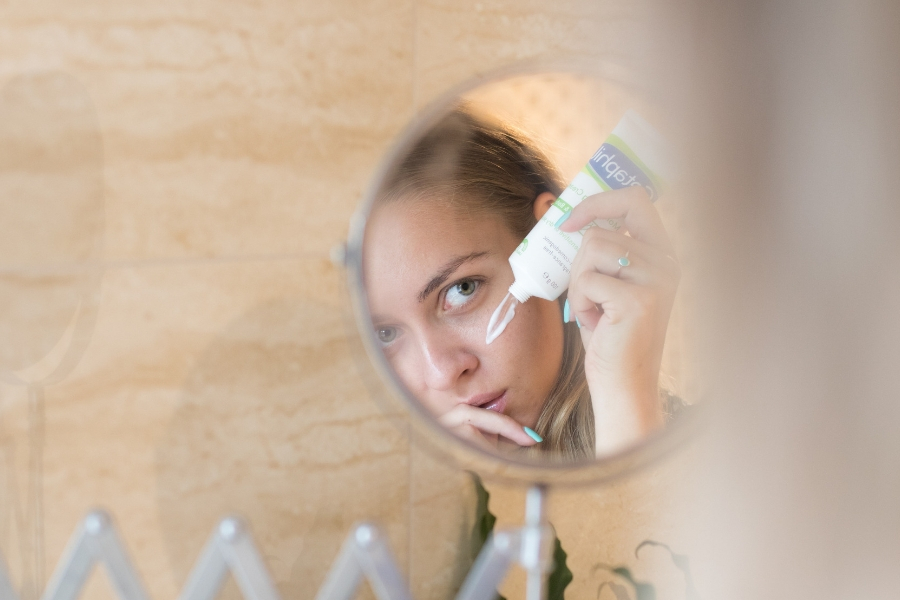Common Skin Conditions and Their Treatment

As one of the most complex organs in our body, skin can be a little tricky to maintain. Its appearance is very important for our self-esteem and our physical health, and if we don’t take good care of it, it could end up causing us a lot of annoying issues. Are you dealing with a skin problem that’s been giving you a lot of headaches? Then let’s talk about most common conditions and what you can do to tackle them the right way.
Eczema

The most common type of eczema is atopic dermatitis. It’s a common condition that usually develops during childhood or teen years, then persists throughout adulthood. It’s characterized by red, itchy skin patches that look very dry and flaky, and it can be very persistent if not treated properly. Eczema can appear anywhere on the skin, with hands and elbows being the most common spots, and it’s usually triggered by stress. There’s a strong genetic element to it, so if your parents or relatives deal with the same problem, it’s likely it runs in the family.
Eczema can be treated with the use of corticosteroid creams and ointments and phototherapy, but for mild cases, it’s recommended that you try light, fragrance-free moisturizers that can repair skin barrier and soothe away inflamed, itchy bits without causing more irritations. Some of the popular products are the Lucas’ Papaw Ointment, Ultra Repair Cream from First Aid Beauty, and simple Vaseline.
Rosacea
A condition manifested by ruddy, irritated appearance of our cheeks, forehead, and nose, rosacea can be a pain to deal with, especially because doctors aren’t sure what causes it. Drinking alcohol, using alcohol-based toners and cleansers, being exposed to extremely hot or extremely cold weather, and eating spicy food can trigger it, and it’s more common among fair-skinned people. It can’t be cured, but the symptoms can be managed with the use of oral and topical solution prescribed by your doctor, and by avoiding common triggers. Cleanse and moisturize your face regularly, and make sure to protect it from the sun.
Acne

Acne can be a huge blow to our confidence. Regardless of whether you only deal with small pimples or severe, painful papules and pustules, it’s a persistent condition that needs to be tackled properly. Usually caused by hormonal changes in our body, it can be controlled and cured only through consistently good acne skin care regimen that you engage in every morning and evening. Make sure to cleanse your face thoroughly and apply lotions that contain ingredients such as salicylic and mandelic acid that will decongest your skin, and use spot treatments to reduce inflammations overnight. If the condition is very severe, talk to your dermatologist and they might prescribe antibiotics and retinol treatments to help with the problem.
Psoriasis
Scaly, silvery patches that appear anywhere on the skin (including our scalp) can be a cause of great embarrassment for people. Psoriasis is an autoimmune disease that’s actually pretty common in the population, and it can be treated with the help of certain oral and topical medications. It’s generally recommended that you keep your skin well-moisturized at all times to avoid dryness and that you try OTC cortisone creams, creams containing vitamin D, or use ointments with medication like tazarotene. You can also join the National Psoriasis Foundation where you will get a lot of support, meet other people who are dealing with the same issue and get the best advice on how to treat it.
Skin cancer

Skin cancer is the most common type of cancer. There are three types that you might be dealing with: squamous cell carcinoma, basal cell carcinoma, and melanoma. While melanoma is the most dangerous one, the other two types are more common and can be more easily prevented. It’s important to pay attention to any changes on your skin, particularly your moles and birthmarks. Learn to recognize precancerous lesions and notify your doctor as soon as you see a change. To protect yourself, the best thing you can do is wear high SPF every single day (yes, even in winter) and avoid prolonged exposure to the sun.
Gentle, consistent care and occasional visits to the dermatologist can go a long way in helping you keep your skin healthy and radiant. Simply do your best to establish a good routine that targets your specific issues, then stick to it every day.